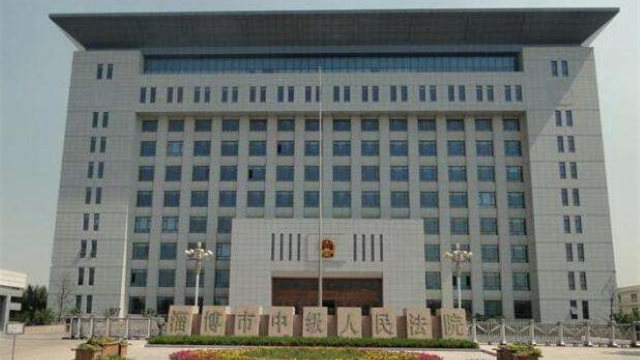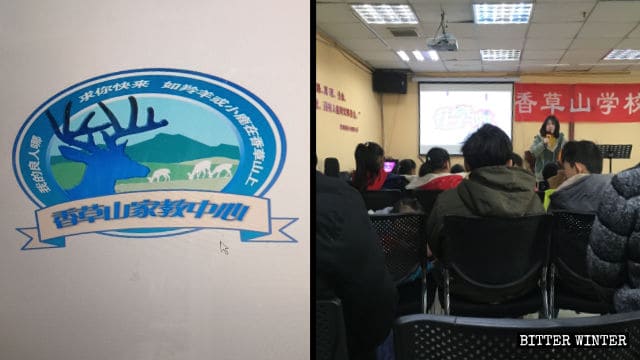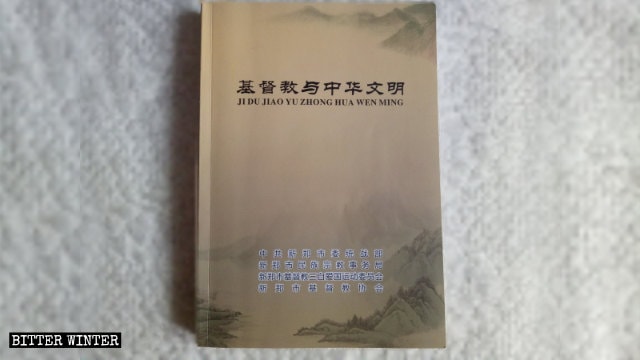The ruling Chinese Communist Party has asserted its control over all religious practices among its citizens, suggesting that the Vatican will only have limited control over the Chinese Catholic Church in the event of a bilateral deal on the appointment of bishops.
“Religions in China must be Chinese in orientation and provide active guidance to religions so that they can adapt themselves to the socialist society,” reads a white paper on religious affairs published this week.
Religious believers must “be subordinate to and serve the overall interests of the nation and the Chinese people … and support the leadership of the Chinese Communist Party,” the white paper said, which includes “integrat[ing] religious teachings and rules with Chinese culture.”
On Tuesday, former top religious affairs official Chen Zongrong told a news conference that any potential power-sharing deal between Beijing and the Vatican over the appointment of Chinese Catholic bishops wouldn’t affect religious freedom in the country.
China and the Vatican are reportedly close to a deal on bishops, which could bring the country’s six million officially sanctioned Catholics back into the Vatican’s fold, and legitimize an estimated 10 million Catholics loyal to Rome in the eyes of the Communist Party.
Chen told the news conference: “I disagree with the view that preventing Rome from having full control over the selection of bishops hinders religious freedom … I believe there is no religion in human society that transcends nations.”
“The Chinese constitution clearly states that China’s religious group and religious affairs cannot be controlled by foreign forces, and [foreign forces] should not interfere in Chinese religious affairs in any way,” he said.
His comments came as Beijing published a white paper on religious affairs saying that it “adheres to the principle of independence and self-management, [and] actively guides religions to adapt to the socialist society.”
“Actively guiding” is a key phrase that has appeared under the administration of President Xi Jinping, and denotes a view of religion as a dangerous foreign import, with officials warning against the “infiltration of Western hostile forces” in the form of religion, particularly Christianity.
Online sales of Bible banned
The white paper came as Chinese Christians reported via social media that the Bible has been banned from online selling platforms like Taobao.

Taobao, JD.com, and Dangdang have all banned the sale of ISBN-free Bibles and related spiritual books, including those published by the official Christian conferences, a Taobao seller confirmed to RFA.
“We can’t sell … Protestant Christian books, the Bible, and [related] spiritual books … without an ISBN code,” the seller said, in reference to the International Standard Book Number. Chinese ISBNs start with the number 7, and can only be issued by the General Administration for Press and Publications (GAPP) under the State Council.

He said the ban had taken effect at the start of the week.
“They said it was because these are restricted [internal] publications,” he added.
The Communist Party has intensified government control over religious activities with a set of tougher regulations since September 2017, sparking fears of further human rights violations targeting religious believers and ethnic minority groups.
The updated rules increased punishments for unsanctioned religious activities and stepped up supervision of certain groups in a bid to “block extremism” and tackle “terrorism,” and include a ban on any activities that harm unspecified “national interests.”
Wu Fan, editor-in-chief of the U.S.-based Chinese-language magazine Chinese Affairs, said Xi Jinping’s administration treats religious work as ideological work in the communist tradition.
“The religious affairs that Xi Jinping is talking about are in fact mass line ideological work,” Wu said. “Religions are expected to follow the leadership of the party, according to [Xi’s] Chinese dream.”
“Basically, they have completely changed the meaning of religion,” he said.
Wu said the party is now insisting that people’s spiritual lives become fused with the political goals of the ruling party.
“In insisting on this hard-wired connection, they are controlling religious believers,” he said. “The Communist Party is an atheist organization, so it’s utterly ridiculous that it should be in charge of people who believe in a god.”
A Protestant pastor in the southern province of Guangdong who identified himself as Ma Ke, or Mark, agreed, saying that the recent emphasis by Xi Jinping on the “Sinicization” of religion will result in the stifling of religious belief.
“I have just read the white paper … and I felt that they are still going in the same old direction,” he said. “Unlike in other, free and democratic countries, they want all religions to serve this government.”
“But a fusion of religion [and state] can only have one outcome; a total lack of genuine religious belief, which is why other countries don’t do the same thing as China,” he said.
According to the white paper, “actively guiding religions in adapting to the socialist society means guiding religious believers to love their country and compatriots, safeguard national unity [and] ethnic solidarity.”
Doesn’t bode well
Anthony Lam, of the Holy Spirit Study Center in Hong Kong, said the white paper doesn’t bode well for any future deal with the Vatican, echoing other Catholics around the world who have called on Rome to withdraw from any deal with China.
“This tug-of-war has been going on for so long, which shows how important the key issues are to both parties,” Lam told RFA. “The appointment system [for bishops] must comply with canon law [and] all appointments must be made unanimously.”
“Otherwise, the entire world will be against us,” he said. “The Catholic Church cannot make an exception … for China.”
Source: Copyright © 1998-2016, RFA. Used with the permission of Radio Free Asia, 2025 M St. NW, Suite 300, Washington DC 20036. https://www.rfa.org.




